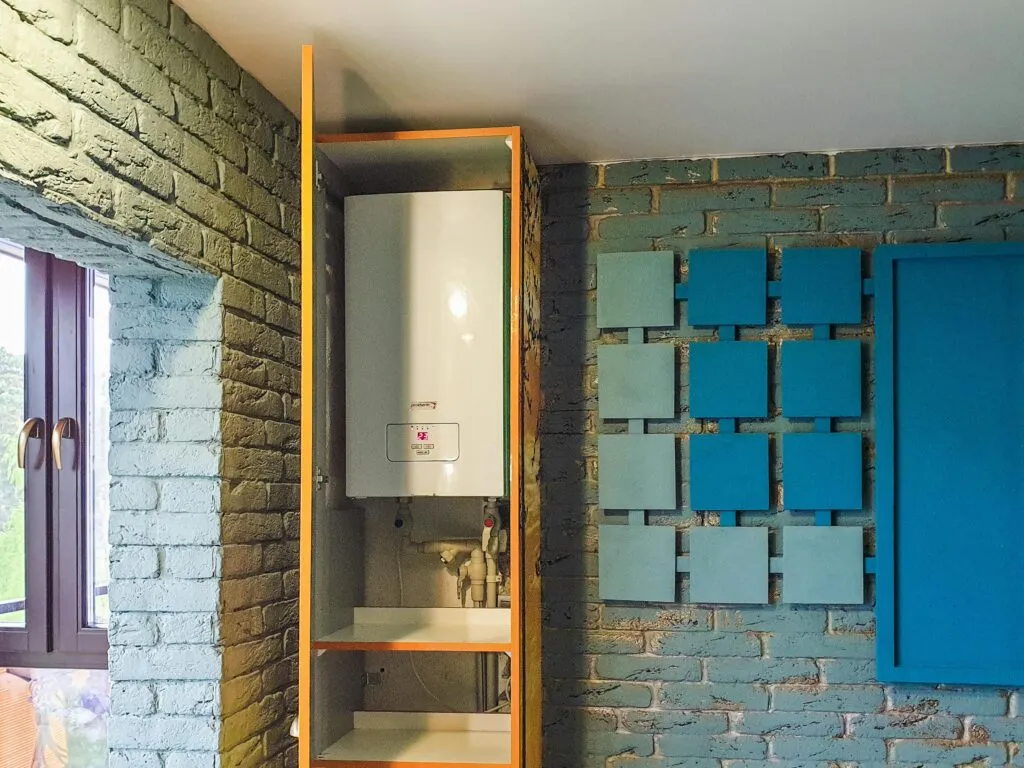Tank and tankless hot water systems both get the job done, but they go about it in very different ways with their own unique set of pros and cons. We at SunCity Hot Water will tell you all about the advantages as well as the disadvantages of both starting with:

Tank Hot Water System
Tank water heaters consist of a large insulated tank that stores a predetermined amount of hot water. A big, insulated tank that holds a set volume of hot water is the main component of tank water heaters. Functioning a bit like massive thermoses, they continuously maintain a hot water reservoir at a preset temperature, usually approximately 120 degrees Celsius. When you activate a hot water tap, the heated water from the reservoir quickly flows through the pipes and out of your tap. To keep the temperature stable and refill the supply, cold water enters the tank simultaneously.
Pros
- Lower initial cost: Tank water heaters are generally much cheaper to buy and install compared to their tankless counterparts.
- Simpler design: Their straightforward technology translates to easier maintenance and repairs, often at lower costs.
- Reliable hot water delivery: With a pre-heated tank, you’re guaranteed a burst of hot water as soon as you need it, perfect for households with high hot water demand during peak hours.
- Compatibility: Most existing plumbing systems are designed to accommodate tank-based water heaters, making installation a breeze.
- Backup water supply: In case of a power outage, the hot water stored in the tank can serve as a temporary backup.
Cons
- Energy inefficiency: Constantly heating a tank of water, even when not in use, leads to higher energy bills.
- Limited capacity: Tanks come in various sizes, but smaller tanks might struggle to keep up with high hot water demand, leading to cold showers during peak usage times.
- Space occupation: Tanks can be bulky and take up valuable floor space, especially in compact homes.
- Lifespan: While generally reliable, tank-based water heaters typically have a shorter lifespan of around 7 to 15 years.
- Leak risk: A malfunctioning tank could lead to leaks and potential flooding, causing property damage.
Tankless Hot Water System
Tankless water heaters use electric coils or gas burners to swiftly heat water as needed, as opposed to keeping a supply of prepared water in a tank. A gas burner or electric heating components are used by the tankless unit to heat the incoming water when a hot water faucet is turned on.
Pros
- Energy efficiency: Tankless heaters only activate when hot water is demanded, eliminating the standby energy loss associated with tank-based systems. This translates to potentially lower utility bills, especially for households with moderate hot water usage.
- Endless hot water: As long as there’s a fuel source and water supply, tankless systems can theoretically provide a continuous stream of hot water, eliminating the possibility of running out during extended showers.
- Compact size: Tankless water heaters are much smaller than their tanked counterparts, making them ideal for space-constrained areas.
- Long lifespan: Tankless heaters can last up to 20 years or more with proper maintenance, potentially offering a longer lifespan than tank-based models.
- Lower risk of flooding: Since there’s no tank filled with water, the risk of leaks and flooding is significantly reduced.
Cons
- Higher initial cost: Tankless water heaters are generally more expensive to purchase and install compared to tank systems.
- Installation complexity: Tankless systems might require modifications to your existing plumbing, potentially increasing installation costs. They may also require specific venting configurations depending on the fuel source.
- Flow rate limitations: Tankless heaters have a limited flow rate, meaning they might struggle to supply enough hot water for multiple fixtures running simultaneously. This could result in lukewarm showers if someone uses hot water elsewhere in the house.
- Fuel source dependency: Gas-powered tankless heaters require a natural gas line, which might not be readily available in all areas. Electric tankless models require a high-voltage electrical connection, which might necessitate electrical panel upgrades in some homes.
- Maintenance considerations: Tankless heaters require regular maintenance, such as cleaning the inlet filter, to ensure optimal performance.
Choosing Between The Two
What kind of hot water system is best for your house? In the end, it boils down to your hot water usage habits, energy costs, initial spending plan, and details of your house layout.
Household Size and Usage
- Large families with high simultaneous usage may benefit more from a tank system.
- Smaller households or those with staggered hot water usage may find tankless systems more suitable.
Installation Space
- Homes with limited space should consider tankless systems for their compact size.
- Homes with more space can easily install a tank system.
Budget Considerations
- A tight budget may lead to choosing a tank-based system due to lower initial costs.
- Long-term savings and energy efficiency might justify the higher initial investment in a tankless system.
Ready To Choose? Get a Free Quote at SunCity How Water!
With our quality service and licensed professional plumbers, we are ready to install, repair, and replace your Hot Water System! And with our 24/7 urgent service, you can call us anytime!
